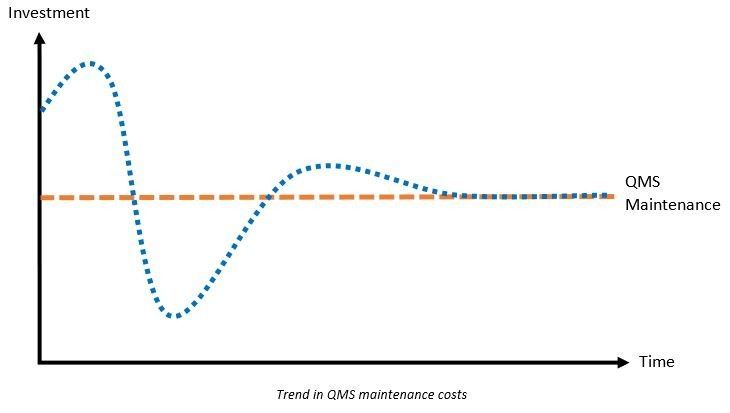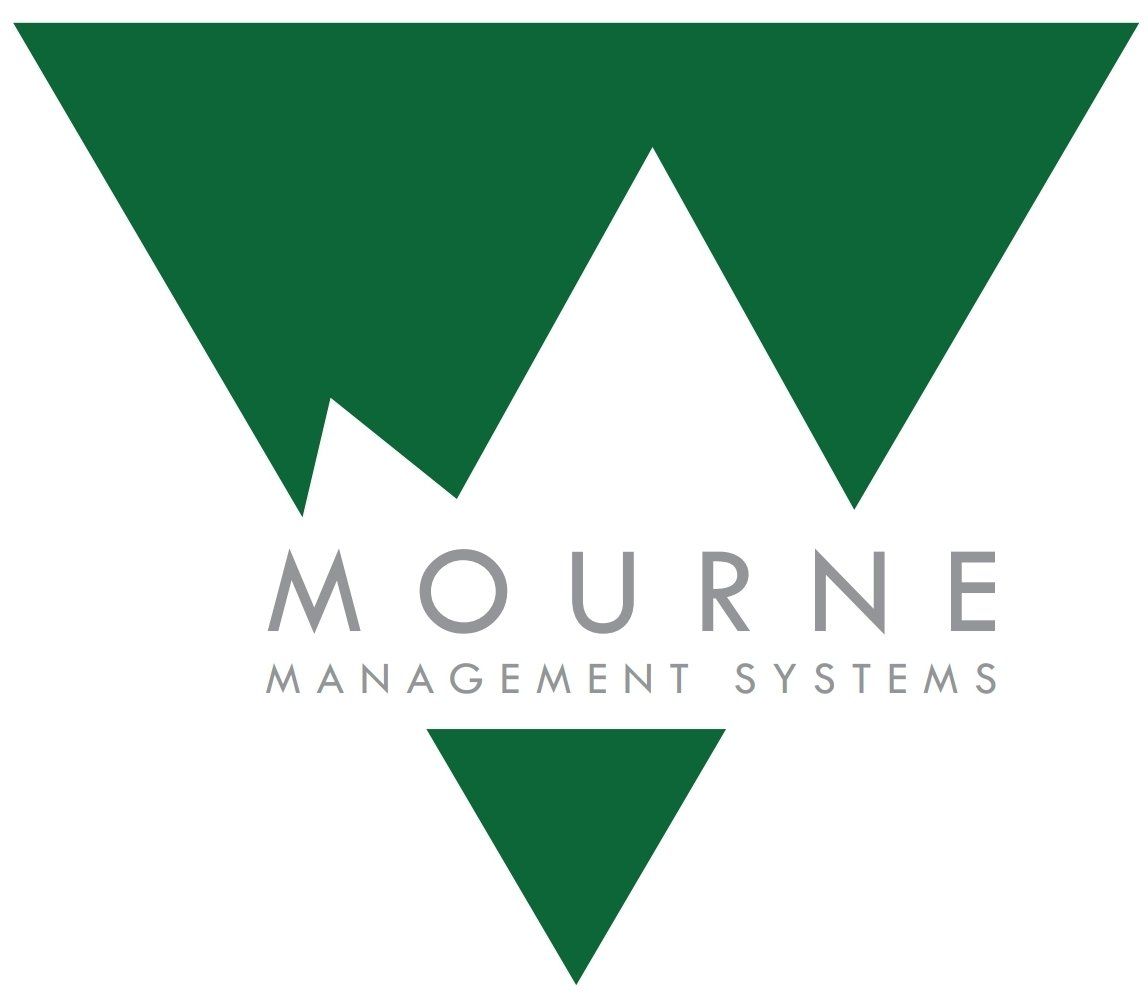QMS – Quality Makes Sense
Share this blog via:
QMS - QUALITY MAKES SENSE
Before delving into why quality makes sense, firstly it is vital to understand “What is a QMS?”. A Quality Management System is a collection of business processes and functions aimed at continuous improvement of quality, to ensure customer expectations and requirements are met or exceeded.
Expressed as a framework of organised structures, methods, techniques, policies, procedures, processes, and resources; Quality Management Systems are also methods by which companies can ensure responsibilities, time-scales, relationships, contracts, and agreements are equivalent to other relevant international standards.
What are the benefits of implementing a QMS?
- Boost in productivity
- Increased effectiveness in the use of company resources
- Improved customer loyalty that leads to repeat business
- Heightened employee and company morale that reduces turnover rates (thereby decreasing costs of training new employees)
- Better strategic planning (Challenging goals and targets that encourage company growth and expansion)
- A sense of accountability and an understanding of individual contribution that fosters open communication and active participation from employees on all levels
- Flexibility that enables fast and appropriate reactions to opportunities and obstacles (Effective Risk Management)
- Measured and comprehensive tracking and monitoring systems that can detect defects, gaps in production and customer satisfaction, and core issues within processes, goals, or functions
- Higher chances of business sustainability for future trading
I believe there are companies out there who know how to create the right cultures and management capabilities to run a business well. However, some companies have arguably lost sight of quality, reliability, supply chain and procurement issues. There may be an adherence to old values and cultures causing a failure to match technological changes with modern management capabilities. There are also organisations that may be negative to change, there may be a conflict of personal interest/ commitments, some people may also hate the element of administrative tasks (paperwork Exercises) and ultimately the fear of the initial investments of man hours, software, and additional resources/ equipment.

What people can forget about is that all these factors are tailored and implemented to the company’s own requirements, so that they may reach their goals and targets for the future.
People’s or Company’s negative perceptions may derive from subjective norm. This is a social factor that refers to the perceived social pressure to engage or not to engage in the behaviour or task asked of them. PBC (Perceived Behavioural Control) is the individual’s perception on the degree of difficulty of performing a task (Ajzen, 1991). According to the general rule, the more positive the attitude, and the more favourable the subjective norm is; will lead to greater PBC in regards of the individual’s behaviour, and the stronger intention by the individual to perform the task (Ajzen, 1985; 1991).
Therefore, staff having high personal concerns regarding the task, will create an unfavourable attitude towards the QMS, thus affecting the use and effectiveness of the QMS.
Communication between employees and management holds significant importance on employee satisfaction and is the essential human factor for overall effectiveness and continuous improvement of the Quality Management System.
Top management must be the first to show the awareness of the real purpose of the QMS and must attract their employees’ attention as well as acknowledge their expectations and address any concerns. Conclusions are offered to improve the relationship among all parties through an improved status of the quality representative position over employees. This formal direct access to management and the right to exercise and manage internal audits of the system are a positive factor. Informally, this role is far greater and consists once again of the crucial element of continuously improving of the QMS.
The following factors can be explored as roots of staff angst or apprehensions towards a QMS implementation:
Lack of organisation
Disorganisation can affect almost every part of a company. When organisational issues exist in terms of Quality, the tracking, monitoring, updating, accessing, locating, and distributing of those key documents can become difficult and tedious. Errors become a tangible problem. Time is wasted. Employees become frustrated, confused, and disgruntled. And your company’s goals for productivity, quality, and profitability crumble.
Increasing workload & Insufficient staff numbers
Although the competitive market has pushed many companies to improve the quality of their products and services, it has also created a disparity between the amount of work that must be done and the budget available to employ workers to complete the tasks. Businesses that struggle with staffing are likely to experience several issues ranging from employee dissatisfaction and higher staff turnovers to unfinished tasks and an increase in errors. The results are wide-ranging and can include issues like reduced quality performance, deviation from the Quality Management System, failed audits, decreased customer satisfaction, and a decline in sales and profits.
Change avoidance
Implementing a QMS means making a lot of changes. One key ingredient to be successful is, the cooperation and assistance of your employees. As humans, we are hesitant, perhaps even resistant to change by nature, even when the change is positive. So how do you combat human nature and get your employees on board with all the upcoming changes? Being an effective communicator and a leader worth following is a good start to keeping your employees on board. You also need to understand that it is less about changing human nature and more about unearthing and addressing the core reason behind the resistance; these can be in quality terms; human factors.
A QMS is implemented to help combat and control these potentially negative factors through monitoring and measurement of processes to ensure a company remains sustainable. I like to think of it as a big cake recipe. If you leave one key ingredient out, it will all fall apart and become ineffective, thus leaving you with below average standards within your company and your people. Following all steps, instructions, rules, guidelines, policies and procedures, will have a positive and tangible impact on your business.

NAVIGATING THE TRANSITION: A COMPREHENSIVE GUIDE TO THE UPCOMING CHANGES FROM AS9100 REV D TO IA9100
Introduction In the ever-evolving landscape of quality management systems, staying abreast of changes is crucial for organisations striving for excellence. For those operating within the aerospace industry, a significant transition is on the horizon as the proposed changes from AS9100 Rev D to IA9100 are set to take effect. This shift brings a wave of adjustments that demand a proactive approach and strategic planning. In this blog post, we'll delve into the upcoming changes, explore their implications, and guide you through a seamless transition. As a global management consultancy based in Northern Ireland, Mourne Management Systems is committed to providing expert insights and support for ISO system implementations and business management consultancy. --- Understanding the Transition Background on AS9100 Rev D The AS9100 series is a set of international standards developed by the International Aerospace Quality Group (IAQG) specifically for the aerospace industry. AS9100 Rev D, the current version, has been the benchmark for quality management in aerospace, emphasizing risk management, customer satisfaction, and continual improvement. Introduction to IA9100 IA9100 is the proposed successor to AS9100 Rev D, expected to bring about several changes aimed at enhancing the effectiveness and relevance of quality management in the aerospace sector. While the details are still in development, it is crucial for organisations to prepare for these changes to maintain compliance and optimise their quality management systems. --- Key Changes in IA9100 Risk-Based Thinking Reinforcement One notable area of focus in IA9100 is the reinforcement of risk-based thinking. The aerospace industry is inherently complex, with various factors influencing product and service quality. IA9100 is anticipated to place a stronger emphasis on clarifying and detailing operational. With this larger emphasis being put on operational risks (compared to AS9100 Rev D), it is proposed that all risks shall be part of the organisations internal audit plan/ schedule. Enhanced Emphasis on Leadership IA9100 is expected to bring about a more pronounced emphasis on leadership involvement and commitment in terms of the organisation’s “Quality Culture” and “Ethical work environment”. Organisations are advised to assess and enhance their leadership strategies to meet the evolving requirements. Information Security The proposed changes in IA9100 also emphasise the importance of information security within your organisation. With the growing prevalence of data security breaches and responsibilities for organisations to comply with government and industry regulation changes, the new IA9100 standard is proposing that the QMS, being that it is a “business management system”, is a vital resource for the organisation to: - Achieve the Quality management system’s intended results; - Protect customer and employee information; - Prevent IP (Intellectual Property) theft; - Prevent cyber espionage; and - Preserve reputation and trust Greater Operational Control The IA9100 standard signals a strategic shift in aerospace quality management, prioritizing early risk identification and continuous improvement. Emphasizing Control Plans, PPAP, and APQP via AS9145 ensures a structured approach to process control, vital for defect prevention and regulatory compliance. The heightened focus on Foreign Object Debris (FOD) prevention underpins the industry's commitment to safety. By integrating robust business management procedures, IA9100 aims to fortify aerospace's dedication to excellence, safety, and continual improvement, ensuring the highest quality and reliability standards. --- Implications for Businesses Proactive Transition Planning Given the significant changes anticipated with the shift to IA9100, organisations are encouraged to adopt a proactive approach to transition planning. This involves conducting a thorough gap analysis to identify areas that require adjustment or enhancement. Mourne Management Systems, with its global expertise in ISO system implementations, is well-equipped to assist organisations in this crucial phase. Employee Training and Awareness As with any change in standards, ensuring that employees are well-informed and adequately trained is paramount. IA9100's increased emphasis on risk-based thinking and leadership involvement necessitates a comprehensive training programme to empower employees at all levels. Mourne Management Systems offers tailored training solutions to equip your team with the knowledge and skills required for a successful transition. Continual Improvement Mindset IA9100, like its predecessor, places a strong emphasis on continual improvement. Organisations should view the transition not just as a compliance requirement but as an opportunity to enhance overall efficiency and competitiveness. Mourne Management Systems specialises in fostering a culture of continual improvement, guiding organisations to extract maximum value from their quality management systems. --- Mourne Management Systems: Your Partner in Transition Global Expertise, Local Commitment Based in Northern Ireland, Mourne Management Systems boasts global expertise with a localised commitment to providing top-notch management consultancy services. Our team of experienced consultants understands the intricacies of ISO system implementations and is ready to guide your organisation through a smooth transition from AS9100 Rev D to IA9100. Tailored Solutions for Your Organisation At Mourne Management Systems, we recognise that every organisation is unique. Our consultancy services are tailored to meet the specific needs and challenges of your business. Whether you operate within the aerospace industry in Northern Ireland or have a global footprint, our consultants are dedicated to delivering customised solutions that drive excellence. Comprehensive Support Throughout the Transition Navigating the transition from AS9100 Rev D to IA9100 requires a holistic approach. Mourne Management Systems is committed to providing comprehensive support at every stage of the journey. From initial gap analysis to employee training and ongoing optimisation, our consultancy services cover the spectrum of requirements for a successful transition. --- Conclusion The transition from AS9100 Rev D to IA9100 marks a significant milestone in the evolution of quality management systems within the aerospace industry. As organisations gear up for this change, partnering with a reputable management consultancy becomes crucial. Mourne Management Systems, with its global perspective and local commitment, stands ready to guide organisations through a seamless transition, ensuring compliance and fostering a culture of continual improvement. Embrace the change, elevate your quality management systems, and position your organisation for sustained success in the dynamic aerospace sector.

Furthermore, it is crucial that your business plan not only works functionally and profitably, but also works for you and the life you want to create. We all have goals and dreams for our lives and how we would wish to live them. Have you considered what your business would look like if it gave you exactly what you want from your life? Do you have a financial goal in mind that would support your dreams and the lifestyle you want to lead? Do your ambitions align with the business you are creating? How amazing would it be if you could create a business plan and a business that supports your vision? And how incredible would it be if your business worked for you, instead of the other way round?

There are a wide variety of circumstances and causes as to why business growth plateaus at a certain point. Some of these growth hurdles could be attributed to monetary complications with some running out of money before their business plan can be executed, others may not respond properly or meet the demands of their clients. Indicators of variable business growth can include data and metrics. They can show trends of “levelling out” or “a decrease in momentum”. If a business uses metrics and evidence-based decision making this will allow them to isolate the problem early and act on it. Other indicators could be stock prices continuing to decline, thus making shareholders more cautious. Businesses have different ways of reacting to these indicators. In some cases, boards bring in a newly appointed CEO or a former appointed CEO, like P&G and Starbucks; who believe these personnel can revitalise the company to its previous status. However, in most cases, the board of that organisation/ company may expect things to change and stick it out with the current appointed personnel, these companies include Apple Inc., GE and Cisco. Some of the causes for a business to initially stop growing is the law of operating on large numbers. As a company grows the percentages accumulate, as a result; they have increased income and increased outgoings. Therefore, as the foundations grow for the business, this can pose a high risk and require more control placed upon it. In the cases of increased start-ups, competitiveness in the market increases. Start-ups, with the benefits of lower overheads, enable them to win new contracts and make a significant profit increase. We know how difficult it is to win a contract; however, sustaining the business throughout the duration of the contract and managing cash flow can become the next and biggest element of risk in terms of business growth. This in return puts pressure on the start-up or the smaller company to gain more sales, explore new markets or even look at new geographical regions to operate in. It could also be suggested that the growth of any company could be affected by the maturity of the market. Over time, consumers become more and more acquainted with or faithful to certain products in a much more predictable pattern. This then leaves some businesses vulnerable and leaving their business growth plan to chance, hoping that severe changes happen to the market leaders so they can compete for the new market shares that become available from their competitors. It could be added that with the market growing, prices are likely to normalize, thereby limiting the ability to grow and expand by increasing the prices. Eventually, some markets come to the stage of exhaustion owing either to a small population increase or to product commercialisation. All combined, these product and market life cycles put pressure on the typical marketing and sales growth plans. You could also say that self -preservation of businesses is another reason why growth slows. As a company grows, their existing market could be preserved by a small quantity of market leaders (greater than 99%) and are less likely to outcompete when offering new goods. Therefore, at a point when a small company in this market needs to innovate in order to grow, the pattern is to make it safe; rather than innovate on expanding current goods and services; as their market leaders have the adequate resources in order to do this which they may benefit from. Finally, businesses who say they have a plan but are not seeing the results. This could come from several different factors, however; from my experience it mostly comes down to the organisational culture. Normally the only people who know of these top-level goals and targets are the board. This then leads to an almost Chinese whisper effect when this information tries to be shared but in a diluted state to ensure the “secret sauce” doesn’t get leaked to competitors. This can lead to confusion and a false buy-in from employees as they may not fully understand the reasons for why they are doing things differently or why there has been a change in the business.

The inaugural conference from the Young Entrepreneurs Network Northern Ireland (YENNI) will take place on Friday, January 31 at Riddel Hall, Belfast, bringing together inspiring speakers and aiming to help drive development of young people’s businesses. Entitled ‘Level Up!’ the YENNI conference will see the voluntary organisation take the next stage in its support for 18-30-year-olds interested in business, entrepreneurship, leadership and professional development. YENNI founder, Katie Matthews, was FSB NI Young Entrepreneur 2018 and was included in the NI 40 Under 40 List last year. “I set up YENNI to support other young entrepreneurs and professionals who have a wealth of potential, but perhaps not the means to pursue their dreams and explore their capabilities,” she said. “Our inaugural conference will support the vision to provide a safe space, platform and hub for sharing ideas, connecting, supporting, developing and mentoring the amazingly talented young people of Northern Ireland. I’m delighted that so many inspiring speakers have agreed to take part.” Keynote speakers will include FSB Chair, Tina McKenzie, CEO of Grafton Recruitment, Claire Stewart, Chartered Accountant and NI Young Leader of the Year 2019, and Dave Linton, founder of Madlug CIC and the UK’s Entrepreneur for Good 2019. “What all of the speakers have shown is determination to succeed, and the desire to take businesses to the next level,” said Katie. “Together with the other speakers, leaders and ‘Masterclass’ workshops this is an excellent opportunity to not only learn, but to take the next step in your own development and your business’ growth. “Level UP! Aims to educate, evolve, empower and elevate everyone involved. It will bring together like-minded, driven young people who are current or future entrepreneurs, leaders, professionals, leaders, innovators and disruptors for what I am sure will be a day that will change many people’s lives and outlooks.” Sponsors for the event include GetPrint, along with Grafton Recruitment, O’Reilly Stewart Solicitors, The Mind Tribe UK, Mourne Management Systems, Ruthless Media, Oranga and Excalibur Press. The conference will last from 9.30am to 4.30pm, with tickets priced at £15 via Eventbrite – just search Level Up! Credit - Newsletter - Claire Cartmill https://www.newsletter.co.uk/business/level-up-for-young-entrepreneur-success-at-belfast-1-9215466




